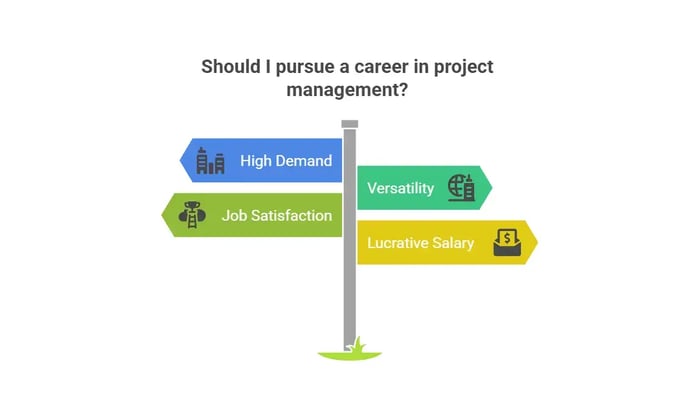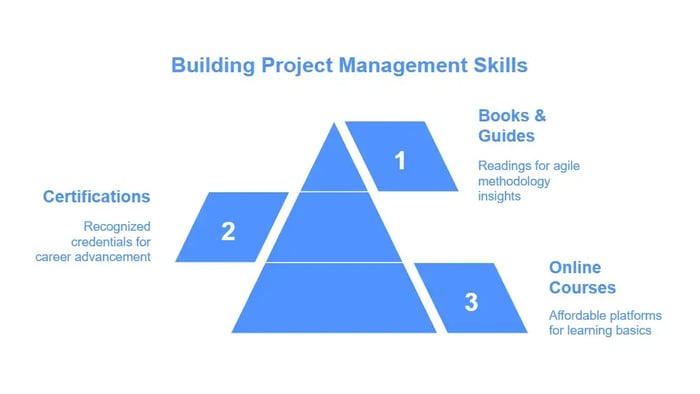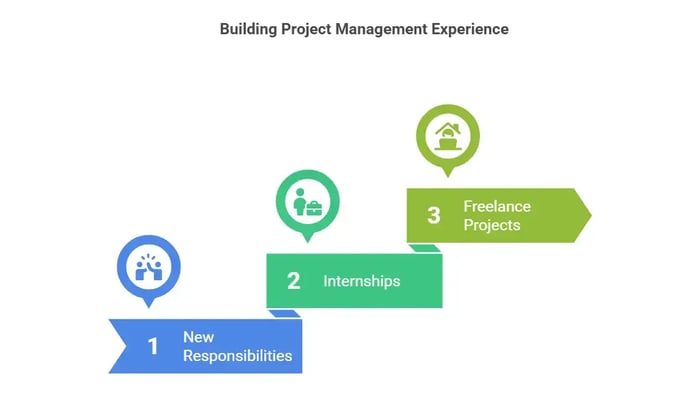Table of Contents
- Your Ultimate Guide to Switching Careers with Confidence
- Why Switch from a Different Career to Project Management?
- 1. Assess Your Transferable Skills 🛠️
- 2. Learn the Fundamentals of Project Management 📚
- 3. Networking is Key 🤝
- 4. Start Small with Project Management Roles 🌱
- 5. Earn Certifications to Strengthen Your Resume 🎓
- 6. Showcase Your Skills in Your Resume & Portfolio 📑
- 7. Stay Updated with Project Management Trends 📅
- 10 Lesser-Known Facts on How to Transition from a Different Career to Project Management
- Final Thoughts: Take the Leap and Start Your Project Management Journey!
Your Ultimate Guide to Switching Careers with Confidence
Making a career transition can feel like jumping into the unknown, especially when shifting to a field as dynamic as project management. But guess what? It’s totally possible—and rewarding! If you’re considering moving from a different career to project management, you’re in the right place. This blog will guide you through the steps, tips, and strategies to make this transition as smooth as possible. Ready to change your career path and become a project management expert? Let’s dive in! 🚀

Why Switch from a Different Career to Project Management?
Before we talk about the "how," let's cover why project management is such a fantastic career option, especially for someone transitioning from a different field.

High Demand: Businesses across industries are constantly seeking skilled project managers to oversee their projects.
Versatility: Project management skills are transferable across sectors, from IT and construction to healthcare and finance.
Job Satisfaction: Project managers often report high job satisfaction due to the autonomy, leadership opportunities, and tangible results they experience in their roles.
Lucrative Salary: With the right credentials, project management can lead to a rewarding salary, often higher than many other professions.
To understand the earning potential after transitioning to project management, check out our guide on project management salary in 2025.
1. Assess Your Transferable Skills 🛠️
When transitioning into project management, the first step is to assess the skills you already have. You might be surprised at how many of your current skills can be transferred to this new career. For example:
| Skill from Previous Career | How it Translates to Project Management |
|---|---|
| Leadership | Leading teams, motivating staff, and making decisions. |
| Communication | Writing reports, holding meetings, and negotiating with stakeholders. |
| Problem-Solving | Identifying project risks and finding solutions. |
| Budget Management | Managing project budgets, controlling costs. |
Whether you’re a teacher, engineer, or marketing professional, these skills are gold in the world of project management! ✨
2. Learn the Fundamentals of Project Management 📚
If you don’t have project management experience yet, it's time to learn the ropes. You don’t need to start from scratch. There are plenty of resources to help you build a strong foundation:

Online Courses: There are many affordable courses to help you learn the basics. Some popular options include Coursera, edX, and APMIC’s Project Management Certification.
Certifications: Consider getting certified in project management. PMP®, PRINCE2, and CAPM® are great options, depending on your career goals and industry.
Books & Guides: Read well-known project management books like "The Lean Startup" by Eric Ries or "Scrum: The Art of Doing Twice the Work in Half the Time" by Jeff Sutherland to familiarize yourself with agile methodologies.
3. Networking is Key 🤝
Just like any career change, networking is essential. Attend local or virtual project management meetups, seminars, and webinars. Connect with professionals in the field via LinkedIn, join industry-specific groups, and attend conferences. Networking will help you:
Gain insights from industry veterans.
Stay up-to-date on the latest project management trends.
Learn about job openings and opportunities.
Pro Tip: Join platforms like PMI or Scrum Alliance to get connected with certified professionals and expand your network! 📡
4. Start Small with Project Management Roles 🌱
Once you've learned the fundamentals, it’s time to gain hands-on experience. Start by taking on smaller projects within your current job or volunteer for roles in your community. Here’s how you can get started:

Ask for New Responsibilities: At your current job, volunteer to manage small projects or lead a team initiative. This experience will add value to your resume and help you transition.
Internships: If possible, apply for internships or entry-level project management roles in your new field. These positions will give you a good starting point and help you build more skills.
Freelance Projects: If you’re transitioning from a creative or tech field, consider taking on freelance project management opportunities to build a portfolio.
Pro Tip: For insights into career opportunities, explore the types of jobs with project management certification.
5. Earn Certifications to Strengthen Your Resume 🎓
Certifications are often a game-changer when transitioning into project management. They not only validate your knowledge but also show potential employers you’re committed to your new career. Here are some great certifications to consider:
| Certification | Ideal For | Duration | Cost Range |
|---|---|---|---|
| PMP® | Experienced Managers | 6-12 months | $400-$555 |
| CAPM® | Beginners | 3-6 months | $225-$300 |
| Agile Certified Practitioner | Tech & Agile Enthusiasts | 2-4 months | $435-$495 |
6. Showcase Your Skills in Your Resume & Portfolio 📑
Once you’ve gained some experience and completed certifications, it’s time to showcase your skills. Your resume and portfolio should highlight:
Relevant Projects: Include projects you’ve managed, whether in your current job, through freelancing, or in personal initiatives.
Leadership & Management Skills: Even if you haven’t held a formal title, make sure to highlight your ability to lead teams, make decisions, and solve problems.
Certifications and Training: Make sure to list all relevant certifications like PMP®, Six Sigma, and CAPM®.
Pro Tip: Learn how a PMP certification can help you achieve your career goals.
7. Stay Updated with Project Management Trends 📅
Project management is constantly evolving, and staying updated is crucial for your success. Here are some ways to keep up:
Read Industry Blogs: Follow popular project management blogs like ProjectManagement.com and PMI.
Join Webinars & Workshops: Regularly participate in webinars and virtual conferences to stay ahead of the curve.
Continuous Learning: Consider advanced certifications or specialize in areas like Agile or IT Project Management to expand your skill set.
More Here: Want to know where the field is heading? Discover the future of project management certification.
10 Lesser-Known Facts on How to Transition from a Different Career to Project Management
At APMIC, we offer the perfect certifications to help you transition smoothly into the world of project management. Whether you're just starting or aiming for advanced expertise, APMIC’s project management programs will set you on the path to success. Start your journey with us today and unlock new career opportunities!





